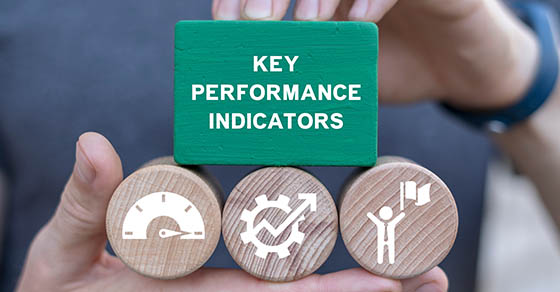Changes to Michigan’s Flow-Through Entity Tax
- ByPolk & Associates
- Feb, 21, 2025
- All News & Information
- Comments Off on Changes to Michigan’s Flow-Through Entity Tax
The Michigan House of Representatives approved, and the Senate passed changes to the FTE tax on December 11, 2024. The governor signed the bill on January 17, 2025. The changes are being made due to the challenges in implementation as originally passed. Generally, the changes are effective for the tax years beginning on and after […]
COURT RULING ON BENEFICIAL OWNER INFORMATION REPORTING– FEBRUARY 19, 2025
- ByPolk & Associates
- Feb, 19, 2025
- All News & Information
- Comments Off on COURT RULING ON BENEFICIAL OWNER INFORMATION REPORTING– FEBRUARY 19, 2025
On February 17th, the United States District Court for the Eastern District of Texas overruled the preliminary reporting injunction on the Smith vs U.S. Department of Treasury case; that means the beneficial owner information reporting requirement is back in effect. As mentioned in our previous BLOG, FINCEN has agreed to a 30 day extension for […]
On developing an effective IT modernization strategy
- ByPolk & Associates
- Feb, 14, 2025
- All News & Information
- Comments Off on On developing an effective IT modernization strategy
Information technology (IT) is constantly evolving. The concept and challenge of keeping business technology current is called “IT modernization.” To stay competitive in most industries today, you’ve got to excel at it. However, you also have to approach IT modernization carefully and cost-consciously. Here are four tips: 1) Begin with an IT audit to get a clear picture of your infrastructure, policies, procedures and usage. 2) Align modernization efforts with strategic objectives; keep return on investment in mind. 3) Take a phased, pragmatic approach to initiatives; don’t try to do everything at once. 4) Train and upskill your users so they can roll with the changes. Contact us for help.
Financial relief for families: The benefits of the Child Tax Credit
- ByPolk & Associates
- Feb, 14, 2025
- All News & Information
- Comments Off on Financial relief for families: The benefits of the Child Tax Credit
The Child Tax Credit (CTC) is available to eligible taxpayers with children under age 17. For 2024 and 2025, the credit is up to $2,000 for each qualifying child and is partially refundable. You qualify for the full CTC amount if you meet all eligibility factors and your adjusted gross income isn’t more than $200,000 ($400,000 if married and filing jointly). Parents with higher incomes may be eligible to claim a partial credit. You must include the child’s Social Security number on your return. In 2026, the maximum CTC is scheduled to drop to $1,000 per qualifying child unless Congress acts to extend the higher amount. Contact us with any questions about your situation.
Questions about taxes and tips? Here are some answers for employers
- ByPolk & Associates
- Feb, 14, 2025
- All News & Information
- Comments Off on Questions about taxes and tips? Here are some answers for employers
President Trump has pledged to end taxes on tips. But so far, no law eliminating taxes on tips has been enacted. For now, employers must follow existing IRS rules. Here are some employer responsibilities: 1) Send each employee a W-2 that includes reported tips. 2) Keep employees’ tip reports. 3) Withhold taxes, including income taxes and the employee’s share of Social Security and Medicare taxes, based on wages and reported tip income. 4) Pay the employer share of Social Security and Medicare taxes based on the total wages and reported tip income. 5) Report this information to the IRS on Form 941. 6) Deposit withheld taxes according to federal deposit requirements. Contact us with questions.
D&O insurance may be worth considering for some companies
- ByPolk & Associates
- Feb, 14, 2025
- All News & Information
- Comments Off on D&O insurance may be worth considering for some companies
Running a successful business can force you to make tough decisions that expose you to legal claims. To hedge against this risk, business owners can buy directors and officers (D&O) insurance. These policies financially protect business owners, executives and other leaders from legal claims arising from management-related decisions and actions. Under the right circumstances, coverage can benefit some small to midsize businesses. To decide whether it’s right for you, first assess your litigation risks. Also consider if having a D&O policy would help you recruit and retain executives and other leaders. Contact us for more information and help shopping for coverage if you decide to buy.
Taming the tax tangle if you’re retiring soon
- ByPolk & Associates
- Feb, 14, 2025
- All News & Information
- Comments Off on Taming the tax tangle if you’re retiring soon
Retirement is a chance to travel, visit with family or just enjoy relaxing. Yet retirement may bring a tangle of tax implications. For example, will you downsize by selling your home? If you sell your home and the capital gain exceeds $250,000 ($500,000 for married couples filing jointly), you must pay tax on the amount over the exclusion limit. Will you work part-time? If so, your earnings could reduce your Social Security benefits (depending on your age) or push you into a higher tax bracket. Also keep in mind that once you turn 73, you must take required minimum distributions from traditional IRAs and 401(k)s or a penalty will generally be imposed. Contact us with questions.
Many business tax limits have increased in 2025
- ByPolk & Associates
- Feb, 14, 2025
- All News & Information
- Comments Off on Many business tax limits have increased in 2025
A variety of tax-related limits that affect businesses increased in 2025 based on inflation. For example, the Section 179 expensing limit has gone up to $1.25 million from $1.22 million. Also up are the income-based phaseouts for certain limits on the Sec. 199A qualified business income deduction for owners of pass-through entities. And most limits related to employer-sponsored retirement plans, such as 401(k)s, are higher this year. This includes employee contribution limits for 401(k) plans, which are up $500 this year to $23,500. With Republicans in control of the White House and Congress, there could be more tax changes this year. Contact us if you have questions about your situation.
Looking ahead to 2025 tax limits as you prepare to file your 2024 return
- ByPolk & Associates
- Feb, 14, 2025
- All News & Information
- Comments Off on Looking ahead to 2025 tax limits as you prepare to file your 2024 return
Many people are more concerned about their 2024 tax bills than they are about their 2025 tax situations. That’s because 2024 individual tax returns are due to be filed by April 15. However, it’s a good time to acquaint yourself with tax amounts for this year, some of which have increased due to inflation. For example, the amount of your earnings taxed for Social Security in 2025 is $176,100 (up from $168,600 in 2024). For 2025, the standard deduction amount is $30,000 for married joint filers (up from $29,200). For singles, the amount is $15,000 (up from $14,600) and for heads of households, it’s $22,500 (up from $21,900). Questions? Contact us.
So many KPIs, so much time: An overview for businesses
- ByPolk & Associates
- Feb, 14, 2025
- All News & Information
- Comments Off on So many KPIs, so much time: An overview for businesses
From the moment they launch their companies, business owners are urged to use key performance indicators (KPIs) to monitor performance. As you may have noticed, however, there are so many to choose from. To make picking KPIs easier, separate them into two broad categories: financial and nonfinancial. Examples of financial KPIs include debt to equity (total debt / shareholders’ equity), which is good for monitoring growth, and current ratio (current assets / current liabilities), which helps manage cash flow. Nonfinancial KPIs can allow you to set goals and track progress in areas such as customer service, sales, marketing and production. Contact us for more information.










You must be logged in to post a comment.